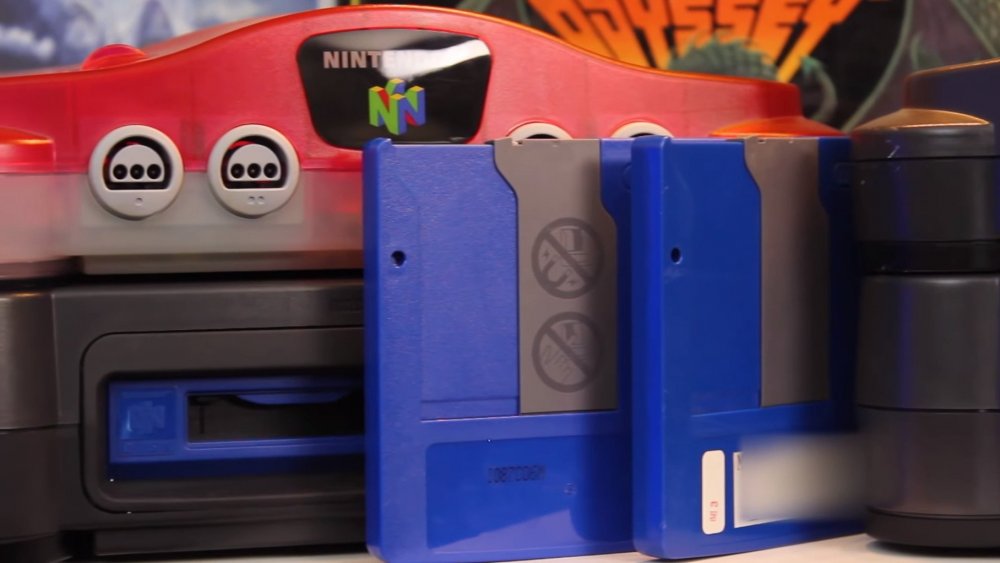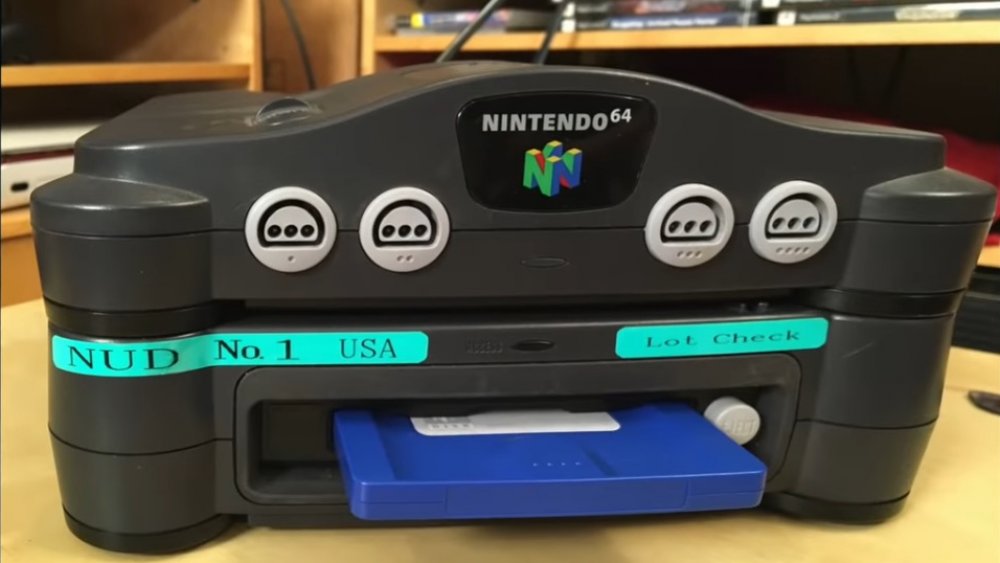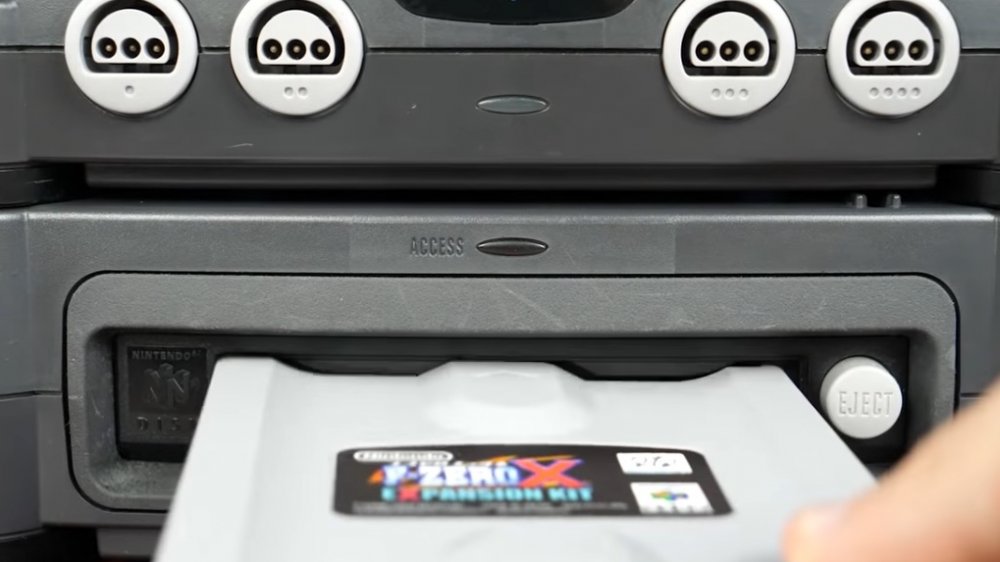This Is Why The Nintendo 64DD Was A Complete Failure
Video game console creators have earned reputations for some high profile misfires over the years, from Nintendo's Virtual Boy to Sony products such as the PlayStation Vita and PlayStation Move. Among these misfires, the 64DD add-on for the Nintendo 64 stands out, as it offered a select audience of gamers the opportunity to engage in more creative play.
According to IGN, the 64DD was "essentially a creativity package and limited online experiment at the same time." It allowed you to capture images from your TV, create 3D models and animation, and make your own tracks for games like F-Zero X. Additionally, it let players access the internet and share their creations online. Unfortunately, the experiment did not turn out well.
Ultimately, the magnetic disk drive reportedly only sold 15,000 units total when it released in Japan in 1999. After its slow start, it was hastily discontinued. Here's a look at why the 64DD failed.
The story of the DD64
Nintendo unveiled the 64DD at 1995's Shoshinkai game show. Developed in tandem with the Nintendo 64, it was supposed to fix some of the console's issues. The 64DD was set for a 1997 release, following the 1996 debut of the Nintendo 64 in the U.S. However, the 64DD did not actually come out until late 1999 and never made it to North America — well, except for some prototypes located years later.
The 64DD was tied into an online subscription service called Randnet. According to a page on Nintendo Japan's website titled "N64 Internet?! All You Can Use?! What is Randnet?!" (very roughly translated), once N64 users signed up for a 2500¥ monthly fee (3300¥ if you didn't have an N64 yet), they could get the 64DD plus six pieces of software and games (such as the F-Zero X Expansion Kit, Polygon Studio, Talent Studio, and Paint Studio) without paying anything extra. The 64DD was not sold in stores at this time, although sources later reported both the 64DD and some titles had limited availability at retail.
Nintendo only 10 disks total (nine games and one utility disk) for the 64DD, including Sim City 64 and Japan Pro-Golf Tour 64. The entire subscription service was shut down, Kotaku says, just 15 months after launch.
Delays inevitably led to failure
Ultimately, the 64DD just didn't sell enough units to be profitable. The major factor that likely fed into the add-on's failure included a two year delay, leading the system to debut with a mostly obsolete data format. The writeable magnetic disks it utilized were, even by the end of 1999, dated. It didn't help that Sony, which had been eyeing a partnership with Nintendo, chose instead to become a competitor — and hedged its bets with the CD-ROM instead of cartridges or magnetic disks for the purposes of storage in its first PlayStation. You likely know which format won that particular battle.
As Kotaku reported, many of the games that ended up on the N64 were meant for the 64DD. These included Donkey Kong 64, which also released in late 1999, and The Legend of Zelda: Ocarina of Time, which debuted in 1998. Some developers were likely forced to decide whether to wait or go ahead and debut their games without the 64DD functionality.
By the time the 64DD finally released in late 1999, many of the games meant to bolster its sales had either launched previously, been cancelled, or moved to a different platform. If the unit had released when it was supposed to, this might be a totally different story. Instead of a rare collector's item, the 64DD might truly have been something revolutionary.



